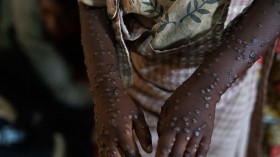Parasitic ants are insects that invade other ant colonies because they are unable to take care of themselves. Chemical signals are employed by ants as a means to recognize the identity of other members of their ant colonies, or "nest mates", and shut out foreign invaders. Certain parasitic ants are able to break the chemical code and live within a host colony without opposition--this is when the parasitic ants come in and take over.
Formica ants, a type commonly known as wood ants, are often in the role of those conquered by parasitic ants. The wood ants that have become enslaved by parasitic ants have more diverse genes and are less aggressive toward non-nest mates than Formica ants who live freely in a colony, according to a new study published in PLOS One scientific journal.
This study looked at how the Polyergus breviceps, a socially parasitic slave-making species of ant, influenced the nest mate recognition system of its enslaved Formica ants. The scientists examined this impact by comparing the genetic, chemical, and behavioral characteristics of both free-living Formica ant colonies and enslaved Formica ant colonies.
Researchers from the University of California Berkeley said that the possible reason for the diversity in chemicals and genes may be due to seasonal raids where pupa are stolen from a few nearby host colonies.
Without the benefit of their enslaved ants, the Polyergus would be unable to forage, take care of the nest, and care for the brood.
"When free-living Formica ants are kidnapped into the Polyergus colony, they enter a society that is comprised of kidnapped ants from many other Formica colonies," co-author Neil Tsutsui, an assistant professor of Environmental Science at UC-Berkeley, said in an official statement. "Here, we show that this rich social environment alters the behaviors displayed by the enslaved ants."
The recognition behaviors of the ants are also different between those living in a free colony and those living in an enslaved one. According to the study, the enslaved Formica ants were less combative to foreign ants, or ants not from their colony, than free-living Formica ants were to invaders. The elemental reason for this behavior is not known and further research is needed to fully understand why.
Nevertheless, the scientists predict that the parasitic behavior invoked on the Formica ants by the Polyergus modifies the chemical and genetic circumstances of their hosts, the Formica ants, as they mature. It is these chemical and genetic changes that in turn affect their nest mate recognition.
For more great nature science stories and general news, please visit our sister site, Headlines and Global News (HNGN).
© 2024 NatureWorldNews.com All rights reserved. Do not reproduce without permission.





